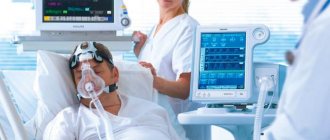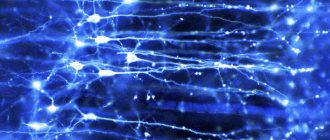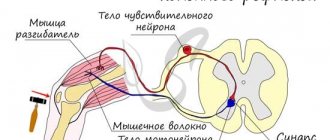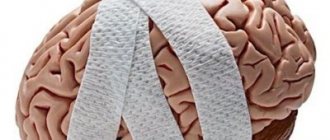Doctors call medicated sleep sedation. This condition is caused by the use of sedatives and even narcotic drugs.
The presence of innovative technologies in anesthesia allows you to choose an individual approach for each case. When a patient undergoes a painful surgical procedure, he will fall into a sound sleep without feeling pain. When you plan to work on a tooth, just take a nap. Modern drugs are many times more powerful than morphine, so the dose of medication can be used minimally.
Innovative drugs do not provoke complications, are eliminated from tissues almost instantly, and do not depress breathing. Having woken up, the patient can go home independently within half an hour.
Basic moments
Since the key goal of the procedure is pain relief, most patients have a question about how anesthesia differs from drug sleep. The latter has become an excellent alternative to traditional pain relief, since the person remains conscious and has all the usual reflexes.
When studying how a person feels during medicated sleep, keep in mind that the administered drug:
- calms;
- relaxes;
- provides an analgesic effect.
To place a person under sedation, they are given a prescribed drug. This type of anesthesia is recommended:
- persons with a low pain threshold;
- children;
- patients with mental disorders.
The calculation of the quantity and administration of components is carried out by an anesthesiologist. Later, the doctor ensures that the patient comes out of the sedative state. In some cases, local anesthesia is prescribed in parallel with sedation. Experts note the following advantages of the method:
- minimum doses of medications;
- lack of addiction;
- breathing is not suppressed during the process of falling into sleep;
- reflexes are preserved;
- quick exit from sleep.
Side effects are very rare.
Indications
Medication-induced sleep has been actively used abroad for several decades. In modern dental clinics, it has almost completely replaced standard anesthesia techniques. Direct indications for introducing a patient into medicated sleep are as follows:
- uncontrollable fear or panic reactions of the dentist or dental procedures;
- negative experience of treatment at the dentist in the past (adults are often afraid of doctors because of bad childhood memories when the treatment was quite unpleasant);
- increased sensitivity of the patient or low pain threshold;
- serious surgical procedures (dentists try to the last to refuse general anesthesia in favor of medicated sleep);
- the need for long-term treatment (to reduce the number of visits to the dentist and do all the necessary manipulations at one time);
- the patient’s childhood (as a rule, sedation is used for all children to avoid the occurrence of traumatic memories and not to cause panic fear of dentists);
- intolerance to standard local anesthetics (allergic reactions to anesthetics are quite serious and can be life-threatening, so it is not recommended to take risks);
- pronounced gag reflex of patients;
- the presence of mental illness on an individual basis (not in all cases, medicinal sleep and dental procedures in general are advisable);
- the desire of the patient (even in the absence of medical reasons for using medicinal sleep, every patient has the right to ask the dentist for a consultation with an anesthesiologist and treatment during sleep).
- hypertension and angina pectoris are direct indications for such gentle procedures, since the patient will never become nervous or experience a hypertensive crisis, and the doctor will never encounter uncontrolled bleeding.
It should be noted that the patient may refuse to undergo medicinal sleep. However, in the case of serious surgical procedures or severe panic with tremors, the doctor has no choice but to perform general anesthesia, which feels more severe and uncomfortable in the postoperative period.
Related articles:
- Tooth extraction under sedation
- Cost of sedation
- The feasibility of dental treatment “under anesthesia”
Sedation depth
The duration of drug-induced sleep and its depth depend on the specific situation and the amount of drug administered:
- The minimum level requires the ability to communicate with others. For example, the patient may be conscious and talking to the physician. In this case, there is a slight lack of coordination of movements, a slight change in intellectual abilities.
- Moderate (average) level - the sleeper is receptive to words and tactile actions.
- Deep level - the patient is completely deprived of contact with the outside world. It will require quite unpleasant stimulation to awaken him. In some cases, breathing difficulties may arise, but even in such a situation, the activity of the cardiovascular system remains stable.
Due to this variety of effects, the procedure can be used in various situations, including for the treatment of children. Medicinal sleep after surgery allows you to restore strength and relieve stress after the intervention.
Contraindications
In dentistry, medicated sleep is an excellent alternative to outdated methods of pain relief and patient sedation. However, even such a safe and widely used procedure has contraindications. These include:
- A stomach loaded with food (in this case, it is enough to wait a few hours).
- Alcohol or drug intoxication (the interaction of inhaled sedatives with ethanol or narcotic substances can be unpredictable and dangerous).
- Traumatic brain injuries - the approach, in this case, is individual, if we are talking about suffered TBI. Particular care should be taken for injuries less than a year old.
- Exacerbation or decompensation of chronic diseases of the body.
- Recent vaccination in childhood or adulthood (it should be remembered that not only standard calendar, but also periodic vaccinations against influenza, staphylococcus, HPV, hepatitis, and so on are also taken into account).
- Allergic intolerance to drugs used to induce medicinal sleep (to prevent disastrous consequences, the anesthesiologist conducts preliminary drug tolerance tests).
- Severe body weight deficiency in a child (especially for infants).
- Specific problems in the functioning of the cardiovascular system (congenital or acquired heart defects that affect hemodynamics).
Important! All of the above contraindications are relative and can be easily corrected before surgery.
The decision to use or refuse medicated sleep is made on an individual basis. There is only one absolute contraindication to performing this type of anesthesia - myasthenia gravis. This disease is rare and represents severe muscle weakness, affecting not only skeletal structures, but also the smooth muscles of the same bronchi.
Popular drugs
For drug-induced sleep treatment to be successful, the selected drugs must meet a number of characteristics:
- minimal likelihood of side effects;
- absence of prolonged depression of consciousness - after administration of the drug, the patient’s consciousness should quickly recover;
- fast action - medications should stop their effects after 5 minutes, maximum 10 minutes.
Midazolam is used when it is necessary to put the patient into light sleep. Moderate sedation is caused by the drug Propofol. An additional element that provides calm and complete relaxation is nitrous oxide, supplied to the visitor through a breathing mask.
In some situations, doctors use barbiturates. However, such drugs are considered not the best solution. When exposed, they have a negative effect on the heart; constant monitoring of the smooth functioning of the circulatory system is required. However, such drugs are used less and less.
Medication-induced sleep as a treatment
For neurosis, hysteria, neurasthenia, depression and other disorders, treatment under sedation is used.
Prolonged interrupted sleep is induced using barbamyl or other sleeping pills. Under the influence of these drugs, a person can sleep for about 18-20 hours. The duration of the course is on average 12 days.
Physiological sleep is also prolonged by using sedatives. Sleep lasts about 10-15 hours. To enhance the effect, aminazine is added. The course lasts on average 12 days.
The use of means for prolonged rest helps to calm, reduce anxiety, and affective tension. During sleep, the patient relaxes, psychological indicators return to normal.
Reanimation
Doctors recommend medicinal sleep, also known as narcotic sleep, in intensive care when the patient has suffered a serious head injury or other serious injuries. The peculiarity of the condition is that its duration is calculated not in minutes, but in days.
The main advantage of this solution is the ability to give the brain a rest and reduce intracranial pressure at high levels. During the period of sedation, doctors will have plenty of time to prepare the optimal tactics for treatment.
Often, medicinal sleep is resorted to in situations where the patient is in distress, and specialists cannot decide on the choice of treatment. Along with the use of any type of anesthesia, prolonged use of medicated sleep can lead to disturbances in the nervous system of the sleeper.
Areas of use
Sedation has a wide range of areas of distribution in modern medicine. Let's look at some of them.
Gynecology
Indications for putting the patient into an artificial coma may include upcoming painful or manipulation that involves a fixed body position.
Obstetrics. During childbirth, the life of the mother or child may be at risk. Nervous tension, fear, prolonged and too painful contractions can exhaust the woman in labor, and she may not be able to cooperate with the obstetrician. Then you can resort to sedation to give the woman a rest.
Other indications:
- large fruit;
- multiple pregnancy;
- scars on the uterus and cervix;
- polyhydramnios;
- stimulation of labor;
- older women in labor.
Dentistry
Effective before surgical interventions (jaw surgery, tooth extraction, abscess). Indicated for allergic reactions to local anesthesia.
Suitable for people who are afraid of dentists, suffering from epilepsy, with mental disabilities, with a weak vestibular apparatus, with long-term painful treatment early, for children to prevent psychological trauma.
Surgery
Artificial coma is applicable during intensive care procedures and long-term operations.
Relieves pain after surgery and promotes faster recovery. Reduces intracranial pressure in case of head injuries.
Diagnostics
There are a number of extremely disturbing studies of various diseases. For example, colonoscopy, gastroscopy, gastroenteroscopy, sigmoidoscopy, puncture, biopsy and others.
In addition to the discomfort and stress they cause, these activities require a strictly fixed body position.
This also includes magnetic resonance imaging and computed tomography.
Birth of a child
Medication-induced sleep during childbirth is prescribed only if the woman in labor so desires. To make a positive decision, an obstetrician's opinion will be required. The doctor carries out a general analysis of the situation and the condition of the expectant mother.
Sedation is recommended only for long-term labor. The measure is considered necessary in the presence of severe pain that deprives a woman of strength and impairs consciousness. Exhausting painful contractions do not contribute to the positive course of labor. In addition, in such a situation, the baby may also suffer.
During a light sleep, the expectant mother will easily regain her strength. The medications used have mild anesthetic properties. Painful sensations will not disappear completely, they will be muffled a little, and contractions will occur with the same frequency.
During childbirth, sedation is carried out in several stages:
- The first stage involves the use of relaxing, pain-reducing compounds. A negative point is the possibility of the drug penetrating the placenta. As a result, the newborn baby may also fall asleep.
- The second stage is the use of sedation drugs. They have minimal toxicity, are safe, and cannot cause breathing problems in a child.
Most mothers who have been prescribed sedation note an improvement in the labor process.
Dentistry
Dental treatment is an area in which the euthanasia procedure has received maximum demand. Compared to general anesthesia, which is used in the process of all kinds of manipulations, drug-induced sleep in dentistry provides more benefits and guarantees greater safety.
Sedation is recommended for patients with allergies to local anesthesia when complex, painful procedures are required.
Even considering the fact that innovative technologies are used in dentistry, most visitors are still afraid to sit in the dentist’s chair. Using light sleep, it will be easier to perform all the required manipulations in the patient’s mouth without fear of sudden movements.
All kinds of psychological disorders also become an insurmountable obstacle to the work of a dentist. By putting the patient to sleep, the specialist is able to perform high-quality treatment of all teeth in one visit.
Medication-assisted sleep for children is no less in demand in dentistry. It is recommended for very young children who find it difficult to explain how to behave correctly, as well as for those who are terrified of doctors and their instruments.
Where to carry out treatment using medicated sleep?
The choice of a dental clinic for treatment, especially for children, should be approached responsibly. Putting a patient into medicated sleep requires a highly qualified dentist and an anesthesiologist assisting him.
The dental center must have appropriate accreditation in oral surgery and licensing, as well as specific equipment to perform the sedation procedure. It is better when all points are completed:
- Current license for anesthesiology and resuscitation.
- Full-time anesthesiologists, and not one-time part-time doctors who resort to “the best in Moscow” for operations.
- Interchangeable operating units operating in a staggered rather than flow mode with a full set of equipment with a separate sterilization station.
- Generation of oxygen in operating units.
- Operating teams should be made up of three people, preferably with an oral and maxillofacial surgeon, and not one “one-man orchestra”.
- A full-time ENT surgeon is present “just in case.”
- Sedation with modern safe drugs and an experienced anesthesiologist cannot cost less than 11,000 rubles per hour.
Important! Attempts by clinics to save money do not end well, since the cost of sedation is mainly the cost of consumables, plus a good fee for a competent doctor. When conducting highly qualified and safe sedation, clinics do not make super profits, since now the cost of treatment is primarily affected by the ruble exchange rate in the purchase of high-quality drugs used to put people into medicated sleep.
Before visiting the clinic, I recommend reading reviews from patients who have already undergone a similar procedure.
Are there possible negative consequences?
Looking through information about new methods of work by doctors, a legitimate question arises whether drug-induced sleep is dangerous. When answering this, it is worth considering that taking any medications can cause individual intolerance to elements or the drug as a whole. The sedation procedure itself is rarely accompanied by side effects. Among them are:
- dizziness;
- vomit;
- feeling of nausea.
In the presence of chronic diseases, such a procedure is not prescribed.
Most doctors agree that in the process of preparing for medicated sleep, the patient must undergo a cardiogram, fluorography, and provide the results of a general blood test. This makes it possible to eliminate risks and provide a firm guarantee that during the sedation process the patient will not have any difficulties with the respiratory system or heart function.
To eliminate the harm of medicated sleep, the doctor must know:
- whether the patient takes any medications on an ongoing basis;
- whether the woman has an expected or existing pregnancy;
- Do you have any allergies?
When the procedure proceeds normally, after sedation the patient quickly and easily comes to his senses.
Features of sedation
All stages of sedation are controlled by an anesthesiologist.
To successfully complete the procedure, you must follow the preparation instructions:
- the last meal should be completed 12 hours before the procedure;
- one day before the procedure, you should refrain from drinking alcohol and consuming nicotine-containing substances;
- Before the immersion process, cleanse the intestines with an enema.
Before putting a person into an artificial coma, the doctor collects anamnesis, some diagnostic processes, takes tests for the presence of HIV, HbsAg, HCV, Rw in the body, and provides consultations.
During the conversation, the doctor finds out the presence of factors that suggest increasing the dose of sedative medications.
Such factors include dependence on alcohol, nicotine, substance abuse, prolonged use of psychotropic substances, and mental disorders.
In case of chronic diseases, old age, impaired liver and kidney function, the dose of sedatives is reduced.
After the consultation, the doctor begins the injection, after which the patient falls asleep within a minute. The anesthesiologist must monitor the dynamics of blood flow and hemoglobin levels.
Coming out of sleep lasts about 10 minutes. Within 40 minutes, complete rehabilitation occurs, but on this day it is better to remain calm and not make sudden movements.
Effect on memory, health
Previously, there was an opinion that drug-induced sleep could affect the patient’s overall health, worsening it, and would also negatively affect memory. However, modern anesthetics do not have such unpleasant effects. They are not able to influence the intellect of the sleeper or dull his memory.
Within forty minutes after receiving the drug, the patient feels:
- drowsiness;
- slowness of reaction;
- coordination problems;
- temporary dulling of attention.
All of the above consequences are reversible, reactions are restored after the drug is removed without additional effort on the part of the doctor or patient.
When planning sedation, a person must understand that in the first hours after waking up he will have to give up:
- complex activities that involve mental stress - the work may not bear the expected fruits;
- control of any transport.
Certain anesthetics can induce hallucinations and unusual dreams. However, the use of such drugs is becoming less common.
Recovery period
Patients subjected to medicated sleep do not require any special rehabilitation. Within 10-15 minutes after waking up, a person can go home with a feeling of mild euphoria (not always observed).
There are no recommendations for restricting food intake or fluid intake. But alcohol is contraindicated for a day or two after visiting the dentist and on the day of surgery.
During the day, patients with hypertension after medicated sleep may experience slight drowsiness or dizziness associated with a decrease in blood pressure.
The risk of not waking up
You should never worry about falling asleep and not coming out of the state of sedation. A negative attitude is not needed in any business, especially during medical procedures.
When planning medicated sleep, keep in mind that risks are always present. The more complex the procedure, the higher their likelihood. You can minimize the risks by choosing a good clinic where the drugs will be prescribed and the doses will be calculated by an experienced anesthesiologist.
Today, drug-induced sleep has become a safe, clearly controlled procedure that is much easier to tolerate by the patient than general anesthesia. The medical staff is well trained and aware of all the unexpected things that can happen during a narcotic sleep session.
Treatment during sleep in children
The child is a special patient in dental practice, as he is notoriously prone to anxiety in front of doctors and panic.
When choosing between physical restraint of the baby by medical personnel and medicated sleep, it is obvious that sedation should be performed. In childhood, medicated sleep has the following advantages:
- the risk of accidental or intentional child intervention in the treatment process is eliminated;
- the risk of fear of the dentist and visits to the doctor in the future is minimized;
- the psyche of the child is saved, who sometimes has to perform quite serious therapeutic procedures using specific dental equipment;
- There is a complete absence of unpleasant sensations during the treatment process and memories of it;
- complete safety of drugs for inhalation anesthesia (if you have to choose between general anesthesia and medicated sleep);
- saving time (you don’t have to spend it on calming and sitting the child, which is why 10-15 minute procedures can last for hours);
- the ability to carry out all the necessary procedures at one time (the child will sit in a medicated half-sleep for 1-2 hours while the doctor completely solves his dental problems, eliminating the need for repeat visits).
If treatment is carried out on infants, then here medicated sleep abroad is used in every single case.
Medicinal sleep has another positive factor - children do not become afraid of doctors and do not remain silent about the occurrence of health problems.
Fear of white coats can lead to the fact that the baby will endure pain or discomfort to the last, without informing his parents about it. In addition, medicated sleep eliminates the occurrence of any anxiety disorders (in children often caused by poor-quality or painful dental treatment), enuresis, stuttering and other unpleasant neurological problems.










